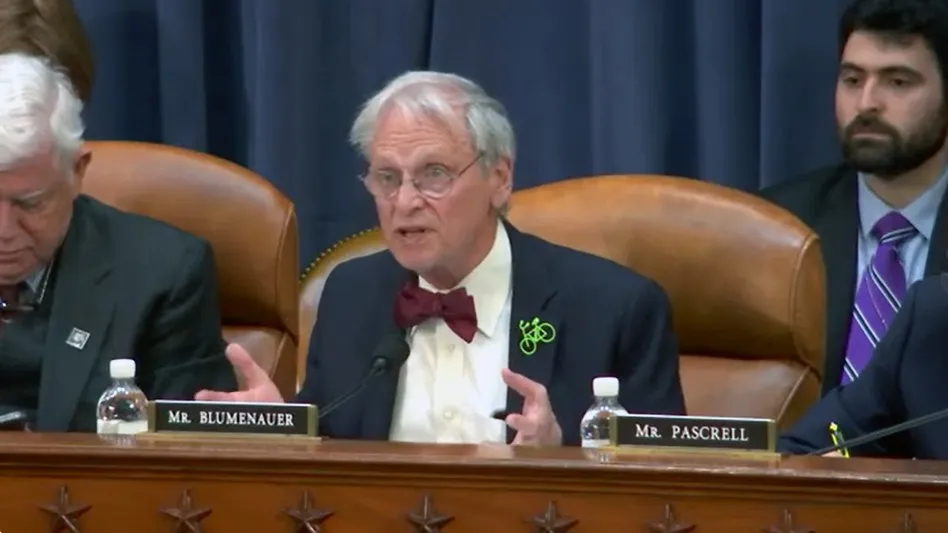
Adapted from an Adobe Firefly generated image
As more states continue to legalize cannabis, workers in the industry are increasingly finding unions a solution to workplace dissatisfaction, and a National Labor Relations Board (NLRB) 2023 ruling created a new standard for processing a union’s demand for recognition.
In the past three years alone, for example, over 100 cannabis facilities in at least 20 states have seen workers join unions, according to Cannabiz Media, predominantly: the United Food & Commercial Workers (UFCW) and the International Brotherhood of Teamsters (IBT).
Some factors that have contributed to worker dissatisfaction and unionization include:
- The natural progression of a growing industry filled with unskilled and semi-skilled farming, retail, and warehouse employees who operate in traditionally low-paying and difficult working conditions;
- A misperception that federal employment laws do not adequately protect cannabis workers because cannabis remains federally illegal;
- A growing number of state laws that require employers to take a “neutral stance” toward unions as a condition of obtaining a license.
This article offers an overview of the legal landscape for union organizing, which has been bolstered by key efforts from a decidedly pro-labor White House Administration and NLRB, the entity that governs the relationship between employers and unions. For employers who wish to remain union free, this article also offers proactive suggestions to prepare for potential union organizing efforts.
How Do Workers Unionize?
Historically, a union could not represent a company’s employees unless it prevailed in an NLRB-held election. The union had to gather signatures from at least 30% of the proposed bargaining unit to trigger the election; then it needed a majority vote to prevail.
But in August 2023, in a case called Cemex Construction Materials Pacific, LLC, the NLRB overturned a 50-year-old law and created a new standard for processing a union’s demand for recognition. Under the new Cemex framework, the Board has created several paths in which a union may bypass the election altogether. Specifically, the new framework involves the following steps:
- A union can request that an employer recognize it as the employees’ bargaining representative. A union can make this request on the basis that a majority of employees in an appropriate bargaining unit signed authorization cards.
- The union’s request can be made—verbally or in writing—to any “agent” of the employer, including low-level supervisors.
- Once the employer receives this request, it must either:
- Recognize and bargain with the union; or
- Within two weeks, promptly file a petition with the NLRB seeking an election.
If the employer fails to file a petition within that window, or if it fails to respond or acknowledge the union’s demand, the union may be certified without an election. Similarly, if an employer violates the National Labor Relations Act (the “Act”) during the initial window, the NLRB can dispense with the election altogether.
Last fall, a case involving a Massachusetts dispensary was the first in the country to issue a Cemex bargaining order. The judge found that the employer interfered with the election process: by firing union supporters; promising benefits to employees if they voted down the union; and preventing employes from discussing unionizing at work. Consequently, the judge ordered the employer to bargain with the union, even though the union lost the election.
Exceptions to Unionization
Not all workers in the cannabis sector can unionize. Generally excluded are those who hold managerial, supervisory and executive positions at a company. The Act also specifically excludes workers employed as “agricultural laborers.” In the cannabis industry, the exclusion applies to those engaged in the cultivation, harvesting, and packaging of cannabis. On the other end of the spectrum, the exclusion does not apply to cannabis retail workers.
Between those two bright lines, whether the agricultural exclusion covers marijuana processing employees is a complicated, fact-intensive question. Last January, the NLRB determined that post-harvest technicians who transformed the plant into cured buds were not agricultural workers. The Board reasoned that “the trimming of marijuana in order to separate out the detritus of a harvested plant from the valuable buds” constituted a “process of extraction,” a non-agricultural activity. The Board distinguished this process from “trimming of a live-plant in a nursery,” which is agricultural in nature. The Board also identified the tasks of creating pre-rolls and packaging marijuana as clearly non-agricultural in nature.
In sum, the NLRB found that the employer’s “post-Harvest production process is not a mere preparation for market but a process that utilizes industrialized processes to transform the marijuana from its natural state into finished products prepared for sale.” Therefore, the workers were covered by the Act.
To be sure, the agricultural exclusion will continue to be heavily litigated in cannabis organizing cases, and the defense remains viable. But the Board’s most recent decision stands in stark contrast to previous opinions that took a more pro-employer stance. We expect that trend to continue unless and until more employer-friendly NLRB members are nominated, perhaps by a new U.S. president, and confirmed by the Senate.
Furthermore, even where the agricultural exception applies, some states have stepped in to cover those workers under state unionization laws.
What Steps Can Employers Take to Prepare?
Given the trends described above, employers who wish to remain union-free may consider various steps to mitigate against the likelihood of a successful organizing campaign.
First and foremost, employers should educate employees about the protections that employees already have, as specified in their policies—including their freedoms from unlawful discrimination, harassment, wage theft, and the like. This starts with a strong, comprehensive, and legally compliant employee handbook. An unlawful or weak handbook can be worse than none at all, and unlawful policies can even be grounds for waiving an employer’s right to an election under Cemex. But a strong handbook legitimizes the business, educates employees about what is expected of them, and demonstrates the employer’s commitment to the relationship.
Employers should also prioritize the hiring and training of strong managers and human resources professionals. In any organizing election, workers’ choice comes down to whom they trust most—the union or their supervisor. And unions can, and often do, make enormous promises to employees about unionization, including substantially better pay and working conditions, protections against arbitrary or unlawful discipline, and a stronger voice in determining what the working terms and conditions will be. But strong managers and HR professionals can help them decide whether those promises are accurate or true.
Employers should also educate managers about what they can and cannot say to workers about unions. Specifically, managers cannot:
- “threaten employees” with adverse consequences if they unionize;
- “interrogate” employees about whether or not they support the union;
- “promise” greater benefits to workers if they don’t unionize; or
- “surveil” employees who are having union-related discussions or meetings.
On the other hand, managers can share:
- Facts about unions. For example, that when the union is voted in, there is no guarantee of greater benefits; instead, everything must be negotiated. Benefits could improve, stay the same, or decrease;
- Opinions about what the manager personally thinks about unions;
- Experiences the manager has had with unions.
In some states, the employer’s ability to share information about unions may be limited by labor peace agreements (LPAs), which require employers to take a neutral stance toward and not interfere with union organizing. Several states, like California, now require LPAs as a mandatory condition of acquiring a license in some circumstances. Employers should consider these requirements carefully.
Regardless of whether LPAs exist, employers must be educated about the specific requirements under Cemex—to respond timely to a union’s bargaining demand and ensure that a free and fair election occurs.
Ultimately, unionizing is a choice between the employer’s workplace culture and the union’s workplace culture. That means that the best long-term defense is investing in strong employee relations policies and support.
Tom Haren is partner at Frantz Ward and Chair of the firm's Cannabis Law Group. Tom has represented cannabis clients since 2016, helping them with innumerable legal issues, including public policy, regulatory compliance, corporate governance, contract negotiations, risk management, litigation and other day-to-day business issues. Tom has led some of the largest M&A transactions in Ohio’s cannabis market, representing both selling license holders and acquiring entities. In addition to his policy and legal work, Tom serves as the chair of Frantz Ward’s Cannabis Law and Policy practice and he was also named to the firm’s Management Committee in January 2024.
Keenan Jones, partner at Frantz Ward, represents businesses of all sizes in litigation matters, corporate formation, business development, and protection of intellectual property rights. Since 2017, he has focused his practice on assisting companies operating in the regulated cannabis space, including hemp, marijuana, and ancillary endeavors.
Before joining Frantz Ward, Keenan co-founded Foster & Jones and worked at the Hoban Law Group. In both roles, he guided businesses in the emerging cannabis industry. Keenan also teaches political science courses at Heidelberg University as an adjunct professor and serves as counsel and an ex-officio member of the board of directors of Model United Nations of the Far West.
Ryan Smith is a partner at Frantz Ward. He focuses his practice on employment litigation and labor relations. He represents management in state and federal courts and before administrative agencies in a wide range of matters, including employment discrimination, retaliation, and harassment, wage and hour disputes, including class and collective actions, and breaches of non-competition and other types of employment agreements. Ryan also represents employers in traditional labor matters, at arbitrations and before the National Labor Relations Board.
When not representing employers in active disputes, Ryan counsels them on key employment decisions such as wage and hour compliance, leave administration, and terminations, and on various aspects of the collective bargaining relationship. He also drafts employment agreements and policy manuals.
Latest from Cannabis Business Times
- Cannabis Rescheduling: Where Do We Go From Here?
- Verano Opens MÜV Haines City, Company’s 75th Florida Dispensary
- Ascend Wellness Holdings Reports $142.4M Net Revenue for Q1 2024
- Trulieve Reports $298M in Revenue for 1st Quarter 2024
- SNDL Reports 1st Quarter 2024 Financial, Operational Results
- Leading Cannabis Brand STIIIZY Expands Retail Presence With Fresno Location Opening Saturday, May 11
- The Cannabist Co. Reports 1st Quarter 2024 Results
- Green Thumb Reports $276M Revenue for 1st Quarter 2024





